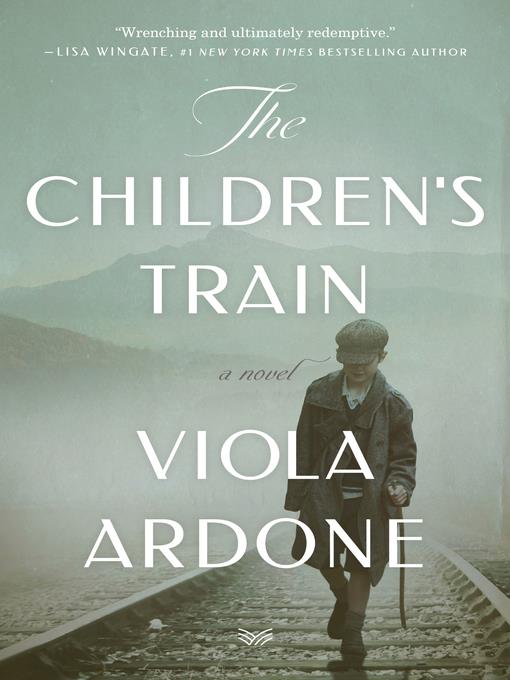
The Children's Train
A Novel
کتاب های مرتبط
- اطلاعات
- نقد و بررسی
- دیدگاه کاربران
نقد و بررسی

October 26, 2020
Ardone takes a moving look at the experiences of a seven-year-old child in post-WWII Italy in her tender English-language debut. In 1946, Amerigo Speranza is one of a group of children sent by train from Naples to Northern Italy to spend time with an affluent family as part of a Communist Party initiative to provide a break from poverty. Despite their anxieties, the kids remain capable of selflessness, giving up their winter coats for the family they leave behind, making the departure scene a searing one. When Amerigo arrives in Modena, he ends up with Derna, a woman who has no affinity for children; nonetheless, they eventually bond, and Amerigo’s interest in music is nurtured by Derna’s piano tuner cousin-in-law, leading to unexpected complications when he’s reunited with his mother six months later. The overall tone is somber, as the book is told from Amerigo’s perspective looking back on his life, but Ardone does introduce some lighter moments, as when one of Amerigo’s fellow refugee children is asked if he’d ever seen an earthenware pignatta down south. His reply: “We had the sticks but not the pots.” With a mix of stark realism and wistful reflection, Ardone succeeds in portraying the challenges of growing up under trying circumstances.

November 1, 2020
Amerigo Speranza spends his days on the streets of Naples scrounging rags for his mother to sell. Food is scarce and poverty rife in post-World War II Italy, especially in the south, until charitable Communists organize a train to take the children north and place them with families who can feed and clothe them. Thus begins a life lived in two worlds, with Amerigo feeling out of place in both. Is he a violinist who eventually travels the world giving concerts, or a child of the slums living off his wits? It is a dichotomy that never resolves, making it impossible for him to feel at home with anyone or anything, until his mother dies and he revisits his childhood home. Ardone's beautifully crafted story explores the meaning of identity and belonging, but readers may be disoriented by the break between the child Amerigo and the middle-aged man, a disruption that leaves one longing for more development to connect the two and an ending that is less rushed and unconvincing after the exquisitely slow and atmospheric buildup at the beginning. VERDICT Ardone's first English-language translation is recommended to fans of Elena Ferrante's Neapolitan novels and for libraries where those are popular.--Cynthia Johnson, formerly with Cary Memorial Lib., Lexington, MA
Copyright 2020 Library Journal, LLC Used with permission.

October 15, 2020
It's Naples in 1946, and the Communist party has arranged for a train to take impoverished children like seven-year-old Amerigo to Northern Italy to live for six months with foster families. Fortuitously, Amerigo finds himself in Modena with a single woman who has no experience of children; nevertheless, Amerigo warms to her and to her cousin, Rosa. Learning that Amerigo is musical, Rosa's husband crafts a violin for him. After the boy returns to Naples, he discovers that his single-parent mother has sold the violin. Feeling betrayed, Amerigo runs away, back to Modena, where his mother tersely agrees he can stay. Flash forward to 1994; now a famous violinist, Amerigo returns to Naples for his mother's funeral, and there meets his young nephew, Carmine, for the first time. Amerigo decides to take Carmine in, as his foster parents had done years before in Modena. But can such an arrangement work? Beautifully written in Amerigo's first-person voice, this sometimes melancholy novel, translated from Italian, offers a deeply satisfying portrayal of the universality of love.(Reprinted with permission of Booklist, copyright 2020, American Library Association.)

























دیدگاه کاربران